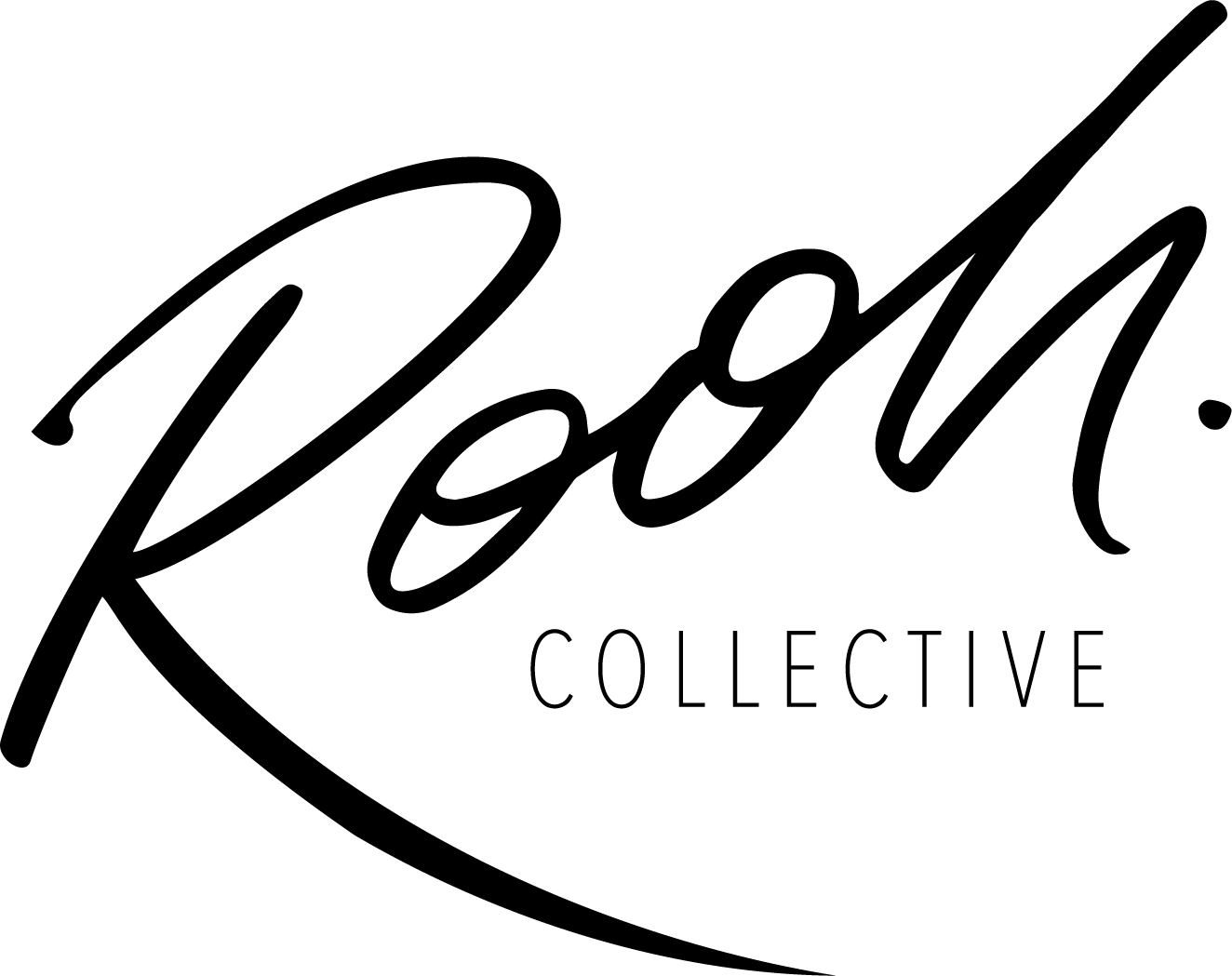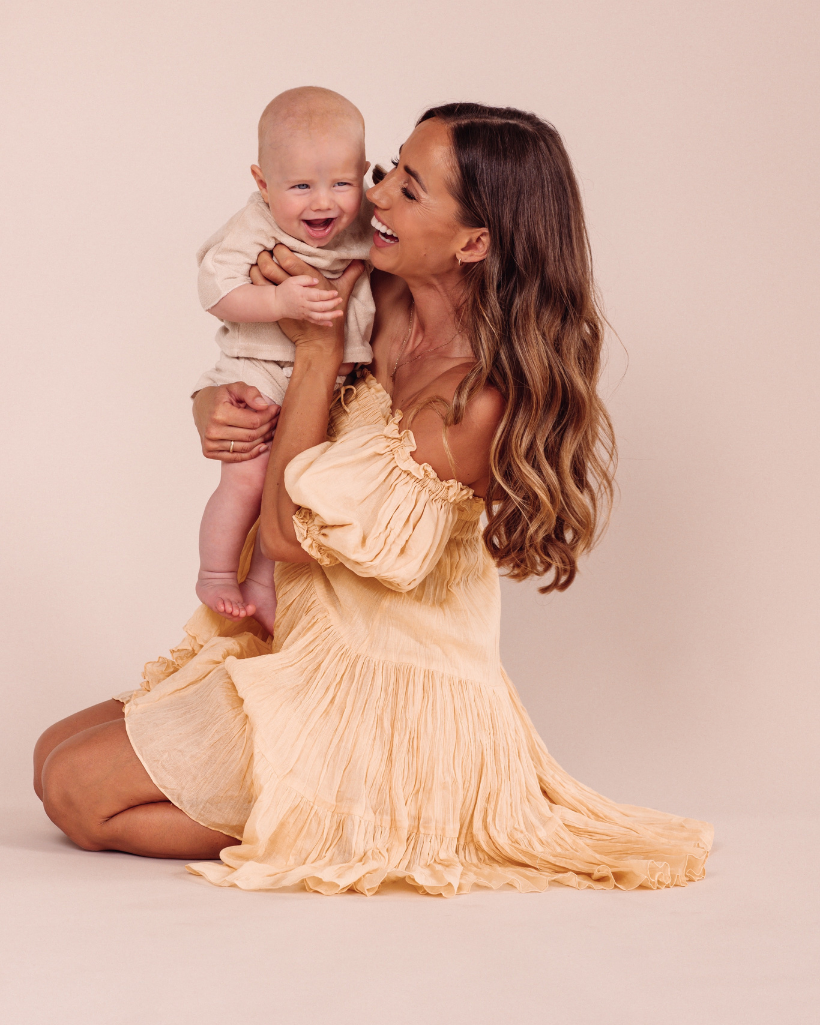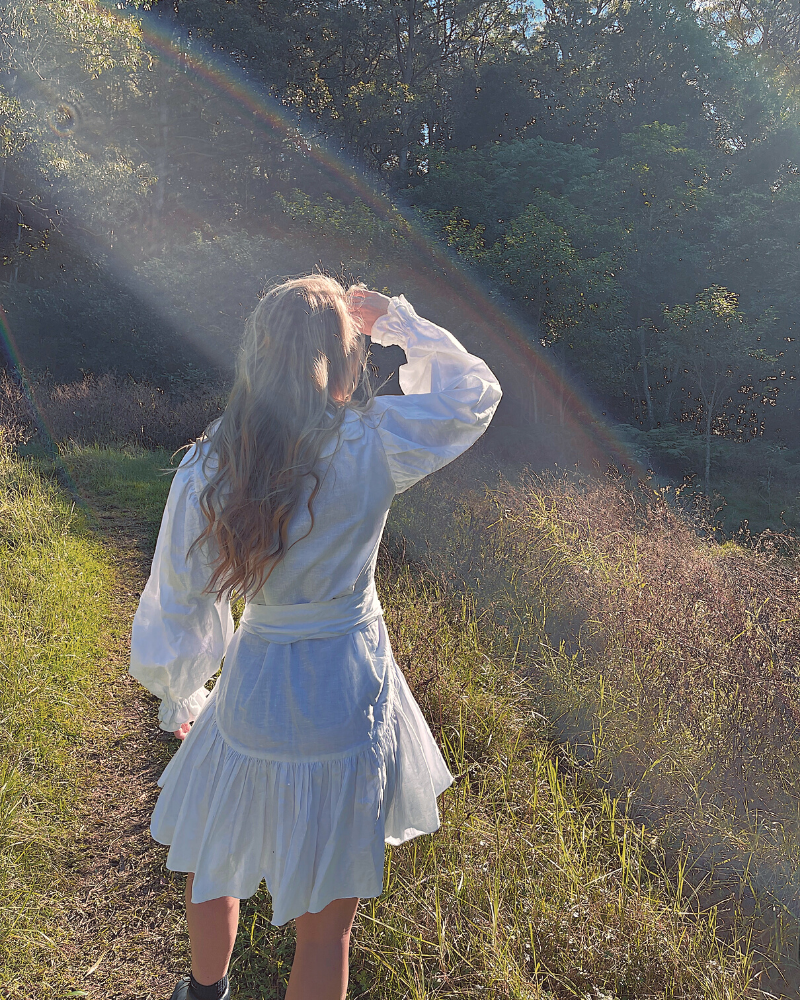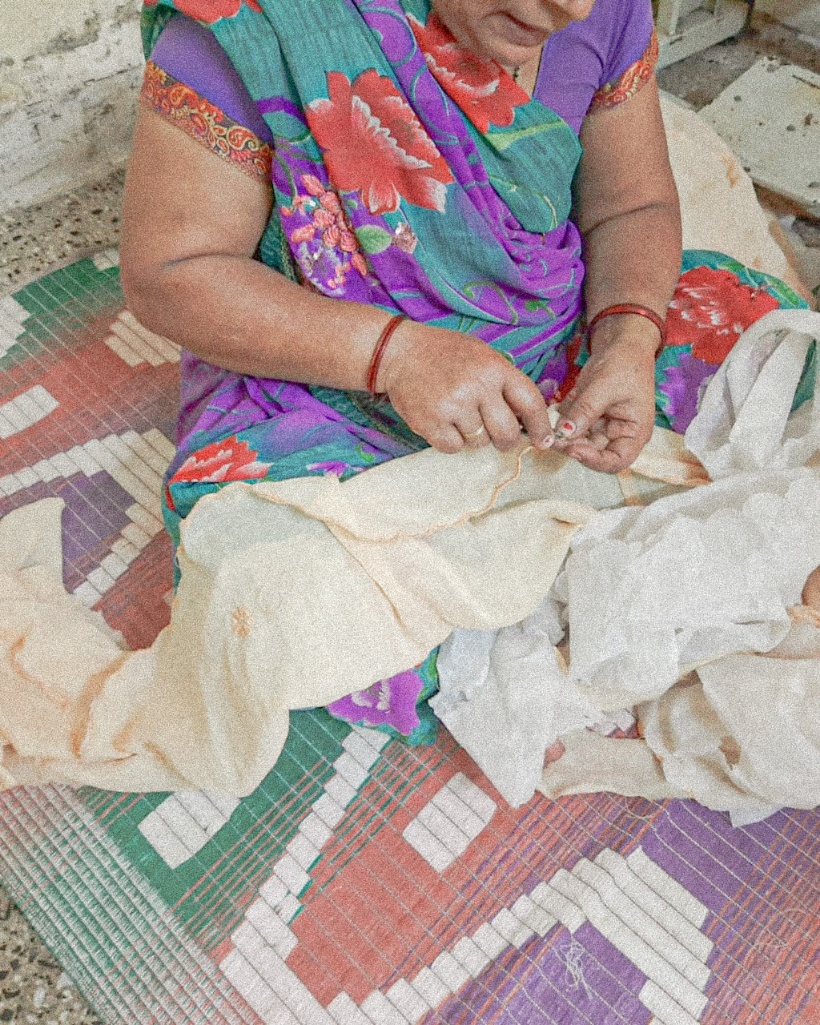
BEHIND ROOH COLLECTIVE
OUR FOUNDATION
Simply put, there is a fast fashion problem in the world today. We are glad to see change happening to prevent and end this problem, as consumers become more aware of what they are purchasing, how it has been made and the ongoing effect those purchases have on our environment.
To support a positive movement, consumers need to focus primarily on the choices they make, push for transparency and put their support behind ethical brands that are driving this change.
Our founder Steph, started Rooh Collective not only to give back to a group of artisans in India that are close to her heart, but to adopt a conscious business model. Whilst this may seem ’trendy’ currently in the fashion industry, we believe if you are genuine and take regular steps to adapt, a conscious business should be the norm. Greenwashing will never play a part in our company and we will always choose to put our people first, and so despite this being hard work, we know the fashion industry as a whole can do better.

“My journey of embracing slow fashion has been an educational one. As I look back now, I used to purchase far more than I would wear and undoubtedly most of my clothes have gone to waste or have been given away. Since adopting sustainable ways in my personal life, I have learned how to thoughtfully purchase pieces that will last and not to mention the money I saved” Steph says
We hope at Rooh we can drive this conscious initiative from just a movement to a way of life and hopefully inspire our consumers to do the same.
OUR INSPIRATION
'Rooh' means spirit or soul in Hindi. Our designs have been inspired by nature and Steph’s love for art and travel. Her initial designs were drawn with practicality in mind, comfort but mostly garments to reflect one's spirit and individuality - our very own ‘Rooh' collective.
Steph’s own journey from fast to slow, conscious fashion has inspired her commitment to creating sustainable, ethical and impactful clothing. She created Rooh to find a balance between sustainability, creativity and affordability in order to produce something that will last our consumers a long time.
Not to mention, I love fashion - Steph says
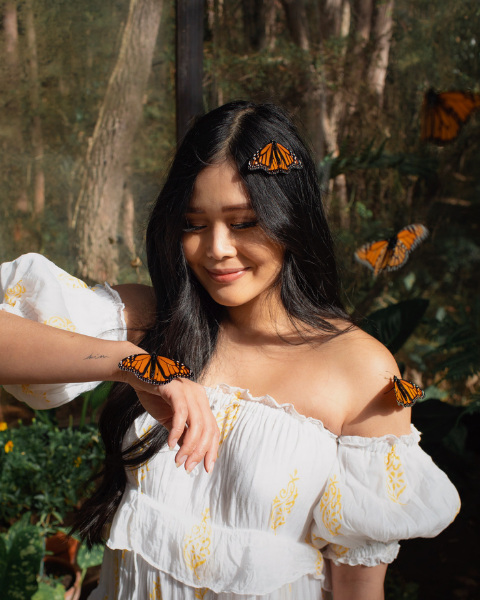
OUR PROCESSES
We aspire to operate as cleanly as possible. Meaning, at each point in our production process, we consciously work on reducing our impact on the planet by using natural fibres in our clothing and reducing our use of natural resources in order to have a minimal impact on our carbon footprint. Our fabrics are made using minimal water, minimal energy and zero pesticides.
We are passionate about creating a fair and safe working environment, promoting and displaying gender equality and showcasing the traditional skills of incredibly talented artisans.
With this emphasis of creating a slow and sustainable growth model, we hope to set a precedent of our industry and educate our consumers to make conscious choices. We encourage a call out culture, push for brands to be transparent and promote our business model for others to implement their own solutions to the environment crisis.
OUR ARTISANS
We are dedicated to giving back to our communities by creating employment for our artisan family, who create our handmade pieces from start to finish - from cutting to dying, stitching, block printing and embroidery.
“With the start of Rooh, I have been able to put people first. Not only being able to put an emphasis on the fair and ethical supply chain by sourcing fabrics and working with partners from areas I know that operate in modest conditions.” Steph says.
"My first visit to our studio in India, run and owned by women, I saw them stitch together excess fabrics for the inner lining of a Lehenga (traditional Indian ankle length skirt) in order to reduce wastage. Our mutual ethics have enabled us to establish a strong relationship and truly value and practise sustainability at our core."

Sushma
I am a mother of one. The artisans at the studio have been my family for almost a decades and what I like most about my work is the mutual aid between us. The Esha dress has helped me improve my embroidery skills on small hand machines.
Anima
My family has been in the local textile community for over three generations. Having a stable income provides us with the financial security we need to move forward and I find comfort going to the studio.


